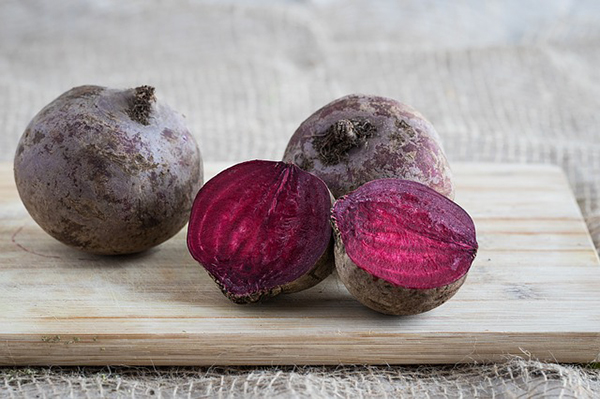Pregnancy is a time when you have to take utmost care of yourself for the health of your growing child. It is very important to be very careful of what you put inside your body, because it will be affecting not just you, but the child growing inside you as well. You need to follow a very balanced diet chart to ensure that your baby gets the most nutrients possible, but it is equally necessary to ensure that you don’t overdo anything. As a rule, most fruits and vegetables, like beetroot, are good for your health during pregnancy. But there are also side effects that might manifest themselves at a time when your body is undergoing some really major changes.
In this article, let us see why beetroot should be eaten during pregnancy, and why consumption should be in moderation.
The benefits 🙂
There are multiple benefits that the pregnant woman receives from eating beetroot.
Increases production of iron: Anemia can be a pretty serious issue during pregnancy, and a pretty common one as well. It is very important to ensure that your blood circulation remains healthy during those nine months because it has a lot of impact on the growth of the baby. Beetroot can help a lot in maintaining healthy blood circulation by detoxification of the blood. It also contains high amounts of iron that increases the hemoglobin count in your blood, thus effectively preventing anemia.
Stronger bones: Osteoporosis is a highly painful and dangerous condition which is characterized by the brittleness of the bones. Pregnancy uses up a lot of calcium, which means that pregnant women are more susceptible to this condition that others. Beetroot contains ample amounts of calcium and silica, which helps in preventing decalcification of the bones, thus making the bones stronger and preventing osteoporosis. Besides, having to carry around excess weight often leads to painful swelling of the joints, which can be alleviated by the anti-inflammatory properties of betaine in beetroot.
Better growth of the baby: Folic acid is one of the most important nutrients that the baby must receive while in the womb for unhindered and healthy development. Beetroot is an excellent source for folic acid, which makes it an excellent food for the pregnant woman. Folic acid helps in tissue growth, and in the development of the spine. The first trimester is crucial in the development of the spine, so make sure you are having enough beetroot during this time. Apart from this, the presence of vitamins A and C also aid in healthy fetal development.
Digestion and metabolism: Almost all pregnant women face issues with digestion, going through uncomfortable periods of constipation and acidity. Beetroot is rich in fiber, which makes it an excellent option for relieving digestive disorders. The beta-cyanine present in beetroots helps in proper functioning of the liver by detoxification of the blood and liver and preventing the deposition of fatty acids in the liver, aiding in proper digestion of food. Besides, the potassium content in beetroot balances the electrolytes in the system and improves metabolism, which in turn leads to healthy bowel movement and maintenance of the correct weight.
The side effects 🙁
As great as the beetroot is for your health, there are some side effects that must be taken into account.
Low blood pressure: Beetroot is great for regulating blood pressure levels. Due to hormonal changes, high blood pressure becomes a pretty common occurrence during pregnancy, and eating beetroots can certainly help in fighting that. But if you already have low blood pressure, this can lead to sudden drops that might be dangerous.
Stomach problems: Beetroots help in regulating digestion and alleviating constipation, but taking too much of it will lead to diarrhea, vomiting, and nausea. This is because of the nitrates, betaine, and fiber contained in the vegetable, which, in excess, can cause quite serious gastrointestinal issues.
Check for allergies: It is not very common, but is certainly not completely unheard of. If there is even the slightest possibility that you might be allergic to beetroots, avoid them at all costs because any kind of allergy is dangerous to the baby. Also, it is best to avoid beetroot during the final trimester because the high oxalate content in beetroot can lead to kidney stones, especially if you have a family history of this health issue.
The beetroot is a great vegetable to eat at any stage. However, pregnancy is a vulnerable time, and it is best to consume any food only after getting expert opinion and advice, and that applies to beetroot as well. Ask your doctor if it is okay for you to eat this vegetable, and book an appointment immediately if you feel any discomfort.

